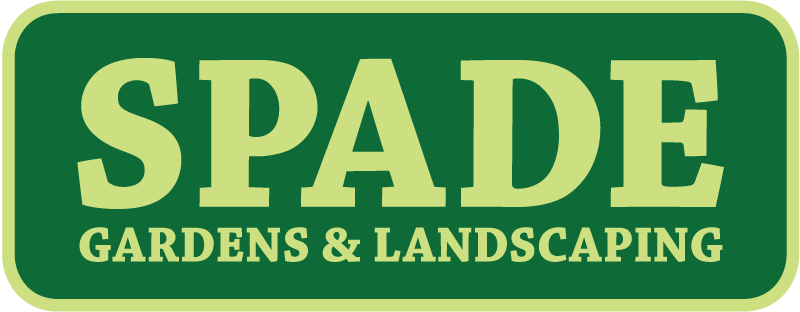Massachusetts Marijuana Community Outreach: Cannabis Abutter Notifications and More
Updated November 21, 2019
Opening a business can be an overwhelming process. You have to find a location, draw up a business plan, order inventory, examine your finances, and maybe even hire staff. Then there's the process of regulatory compliance, an in-depth procedure with lots of paperwork.
The cannabis industry is famous for being highly regulated, especially now that states are determining the legality of marijuana use and setting specific requirements for its sale. In Massachusetts, the Cannabis Control Commission (CCC) exists to help dispensaries understand the applicable requirements and follow the correct steps to comply.
Regulations Surrounding Community Outreach
The Commonwealth of Massachusetts requires all aspiring dispensary owners to hold community meetings before they file the required application to operate.
Where Should the Meeting Take Place?
The community outreach meeting may be held anywhere that can accommodate everyone who wishes to attend. The CCC recommends holding the meeting in a large space, such as a school or town hall. The law requires that the meeting be advertised in a local newspaper, so the venue needs to be large enough to accommodate a large crowd if necessary.
Your site also needs to be fully accessible under the guidelines of the Americans with Disabilities Act (ADA). The law requires that all places open to the public must accommodate persons with disabilities. Ask the owner or manager of your chosen site about accessibility, or consult the ADA's comprehensive Guide to Planning Accessible Meetings.
When Should the Meeting Happen?
Massachusetts law requires that the meeting take place no more than six months before the date when you file your application of intent. Also, in keeping with 935 CMR 500.100, the time of the meeting must be after normal business hours. This is to help the meeting be accessible to as many adults in the community as possible.
How Should the Event Be Publicized?
You are legally mandated to announce the meeting no fewer than seven days in advance. Specifically, there are three actions you have to take:
-
Publish a notice in a general circulation local newspaper
-
File a notice with the town or city's planning board, clerk, contracting authority, and any relevant licensing authority for adult cannabis use
-
Mail a notice to all abutters of the property
Note that the abutters have to receive an announcement by mail—postal mail, not email. Massachusetts General Law is specific on this point, which applies to all public hearing notice requirements.
Who Counts as an Abutter?
The law specifies that abutters' notifications go out to owners of all properties that are:
-
Directly opposite your proposed business location, regardless of whether the street is public or private
-
Within 300 feet of the property line of your proposed location, as indicated on the most recent tax list—even if the abutting property is in another town or city
There is no minimum or maximum number of people who can qualify as abutters.
What Should the Notification Include?
The CCC has created a public notice template that you can use to compose the letter. You can copy and paste it into a document, then add the specifics, such as:
-
Date and time of the hearing
-
Location of the hearing
-
Type of establishment that you are proposing
-
The address you have chosen for your business
You can make additions to the letter if you so choose, or you can decide to write one yourself. The letter just needs to include all of the information listed above; the language you use to convey that information is up to you
Tips for a Successful Notification Process
The easiest way to make sure everyone gets the notifications they need is to start with the text itself, including all required details that pertain to your business.
In the News
The template that the CCC provides is concise, so you can send it directly to your local newspaper without worrying about incurring extra costs per letter or per word.
For each newspaper or local magazine in which you would like to publish your announcement, call and ask:
-
Who you should send the announcement to and in what format (Word document, PDF, etc.)
-
What their pricing looks like—do they charge by the inch (how long the announcement is in print) or by the word?
-
How far in advance you need to send the announcement so that it can go to print on time. Remember, it needs to be published no fewer than seven days before the meeting.
The law only requires you to publish the announcement in one newspaper, but you are free to list it in more than one if you choose to do so.
With the Town (or City)
Remember that the town or city clerk has to receive your notification directly, as does the relevant contracting authority, licensing authority (if any), and planning board. As the business owner, it is your responsibility to ensure that the notification goes to the correct parties. Local authorities should be able to help you identify these parties.
The first person to call is your town clerk. Towns and cities with dedicated websites often have this contact information listed, but you can also call the primary number for your city or town hall.
When you speak to the clerk:
-
Confirm the email address or physical address to which you'll be sending the meeting announcement, as well as the identity of the recipient.
-
Ask who in the town government would fill the role of “contracting authority,” explaining that you are sending out community meeting notices as part of a marijuana business application
-
Ask if your town has a local authority responsible for licensing marijuana use. If so, get their information.
-
Verify the address of your town or city planning board. You may be able to get this information from the municipal website if your town or city has one, but it's always smart to check that it's correct.
While you have the clerk's ear (or eye, if you're doing this via email), ask if there is anyone else you should be notifying. The people above are those required by the state, but your town may have specific laws pertaining to new business registration.
Notifying Abutters
Mailing cannabis abutter notifications can be the most time-consuming part of the meeting notification process, especially if you live in a densely populated area where you might have dozens of apartments or condos within 300 feet or across a roadway.
Even in less populated areas, it can take more time than you'd like to address and stamp each envelope. Time is valuable when you're building a business, so consider using Mailform's bulk certified mail service.
Marijuana licensing regulations don't explicitly require certified mail delivery like some abutter notification laws do, but it's still the safest way to send a letter when you have to prove delivery.
Fortunately, Mailform makes it easy. Here's how it works:
-
Create a Mailform account.
-
Upload the letter in the form of a document or PDF file OR link Mailform with your Google Docs account. This may be the way to go if you want to make edits to the document at any point.
-
Manually enter the addresses of your abutters, or upload a CSV file with a full address list.
-
Select US Certified Mail when Mailform asks you how you want to send your notices.
-
Let Mailform handle the rest.
If you have only a handful of abutters, you can send single letters quickly with Mailform's “quick start” option. To begin, just upload or drag PDF files with the content of your notification onto the page.
Preparing for Your Community Outreach Meeting
There are several pieces of information that you have to convey at the community outreach meeting. Write down answers to the following questions:
-
What type of business will you be running?
-
Where will it be located? What's the address?
-
Does your business need any zoning permits or amendments?
-
Do you need to comply with any Board of Health or local licensing regulations?
-
Is your location at least 500 feet away from any K-12 school, which is the standard buffer zone, or do local regulations permit a smaller buffer?
-
Does the location comply with security requirements specified in 935 CMR 500.110?
-
What is your strategy for ensuring that your establishment won't become a community nuisance? If you're not sure what your city or town's nuisance regulations are, you can search for them on the Mass.gov website.
-
How will you prevent minors in the community from accessing your product?
Regulations require that your community outreach meeting include a question and answer period, so be ready. Read through your answers to the above questions and think about what attendees may ask in response. Consider giving your list of answers to a friend, family member, or co-worker who isn't familiar with marijuana dispensary laws. Then, ask them what else they think people might want to know.
A Final Word
The community outreach meeting is just one part of the pathway to opening your marijuana business, but for many of your neighbors, it will be their first impression of your business. The time you take to plan an informative and professional meeting is an investment in your longevity as a respected local business. Treat it as such, and your community will respond.






